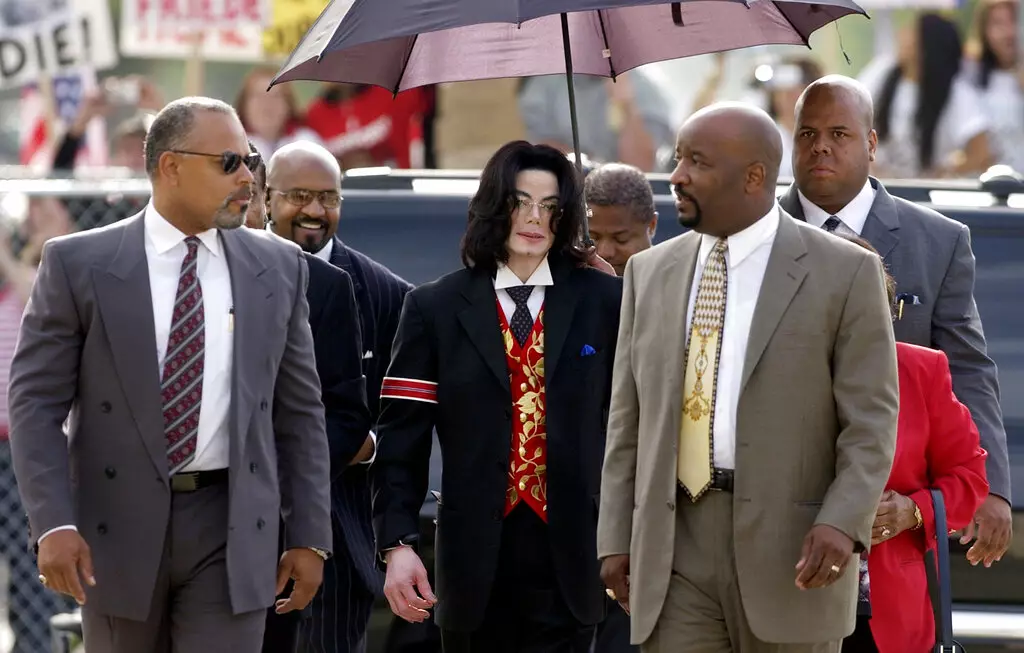The announcement of Channel 4’s upcoming documentary series, tentatively titled *The Trial of Michael Jackson*, offers a powerful lens through which we can delve into the collision of fame, media, and the sometimes tragic consequences of public scrutiny. This documentary aims to synthesize Michael Jackson’s meteoric rise in the music world with the controversy and legal challenges that shaped the latter part of his career. With an emphasis on new perspectives from previously silent contributors, the series promises to navigate the complexities of Jackson’s relationship with both his fan base and the media landscape that relentlessly followed him.
The Legal Drama of 2005: A Historical Context
Michael Jackson faced a significant legal battle in 2005, when he was accused of molesting 13-year-old Gavin Arvizo. The case garnered unprecedented media attention, attracting scrutiny from news outlets and fans alike. Jackson’s acquittal on all counts can be viewed through the dual lenses of justice and public perception. On one hand, the legal system ultimately determined Jackson’s innocence; on the other, the court of public opinion often functions differently, painting a complex portrayal of an artist who was idolized yet vilified.
The upcoming docuseries will not only dissect the details of this legal affair but also interrogate its implications in Jackson’s broader life narrative. To understand the enormity of the accusations and their fallout, one must also consider the cultural dynamics of the time—the rise of tabloid journalism, the frenzy of 24-hour news cycles, and the growing prominence of celebrity culture. The juxtaposition of Jackson’s rise and his subsequent downfall highlights how fame can be simultaneously a boon and a curse.
One of the focal points of *The Trial of Michael Jackson* will be the exploration of Jackson’s tumultuous relationship with the media. The documentary aims to shed light on how sensationalism played a role in shaping public discourse around Jackson, often leading to a narrative laden with prejudice and misunderstanding. By including voices that have remained silent until now, the series seeks to provide a more nuanced understanding of how the media narrative affects the lives of those at its center.
Moreover, the documentary acts as a reminder of the broader implications of celebrity culture. The fascination with public figures can lead to an insatiable hunger for scandal and drama, reinforcing the concept that the media often thrives on the demise of fame. As Jackson’s life illustrates, the tendency to distort reality for entertainment can have devastating effects on the individuals involved.
Groundbreaking Developments in Safety for Performers
As the entertainment industry grapples with the ramifications of past controversies, another relevant story emerges: the launch of the UK’s first-ever registry for intimacy coordinators. Established by the broadcasting union Bectu, this initiative highlights a significant shift in standards within the industry, promoting safer practices for actors involved in intimate scenes. The need for intimacy coordinators has been amplified in the wake of the #MeToo movement, which has unveiled troubling practices and behaviors that once prevailed unchecked.
The importance of intimacy coordinators is not merely in their role on set but also in their potential to foster an environment that respects and prioritizes the safety of all performers. This proactive measure can be viewed as part of a broader movement within the media industry to address issues of consent, safety, and ethical representation, paralleling the more extensive discussions brought forward by documentaries like *The Trial of Michael Jackson*.
Shifting gears to another significant development, the BBC’s unveiling of the high-end Gaelic drama *An t-Eilean* indicates the growing trend of hybrid language programming. With Gaelic and English dialogue intertwining, this series promises to deepen the representation of Scottish culture on screen. Set against the stunning backdrop of the western Isles, the combination of local talent and internationally recognized actors reflects an inclusive approach to storytelling.
As the landscape of broadcasting evolves, projects like *An t-Eilean* underscore the importance of cultural narratives being told authentically, thereby enriching both regional and global storytelling traditions. This initiative, in tandem with the historical examination of figures like Michael Jackson, highlights the dynamic interplay between culture, identity, history, and the media.
The anticipated series about Michael Jackson juxtaposed with recent industry advancements demonstrates a critical moment within the media landscape. It encapsulates the ongoing dialogue surrounding fame, representation, and safety, forging a path toward greater understanding and improvement in how stories are shared and experienced by audiences globally.

